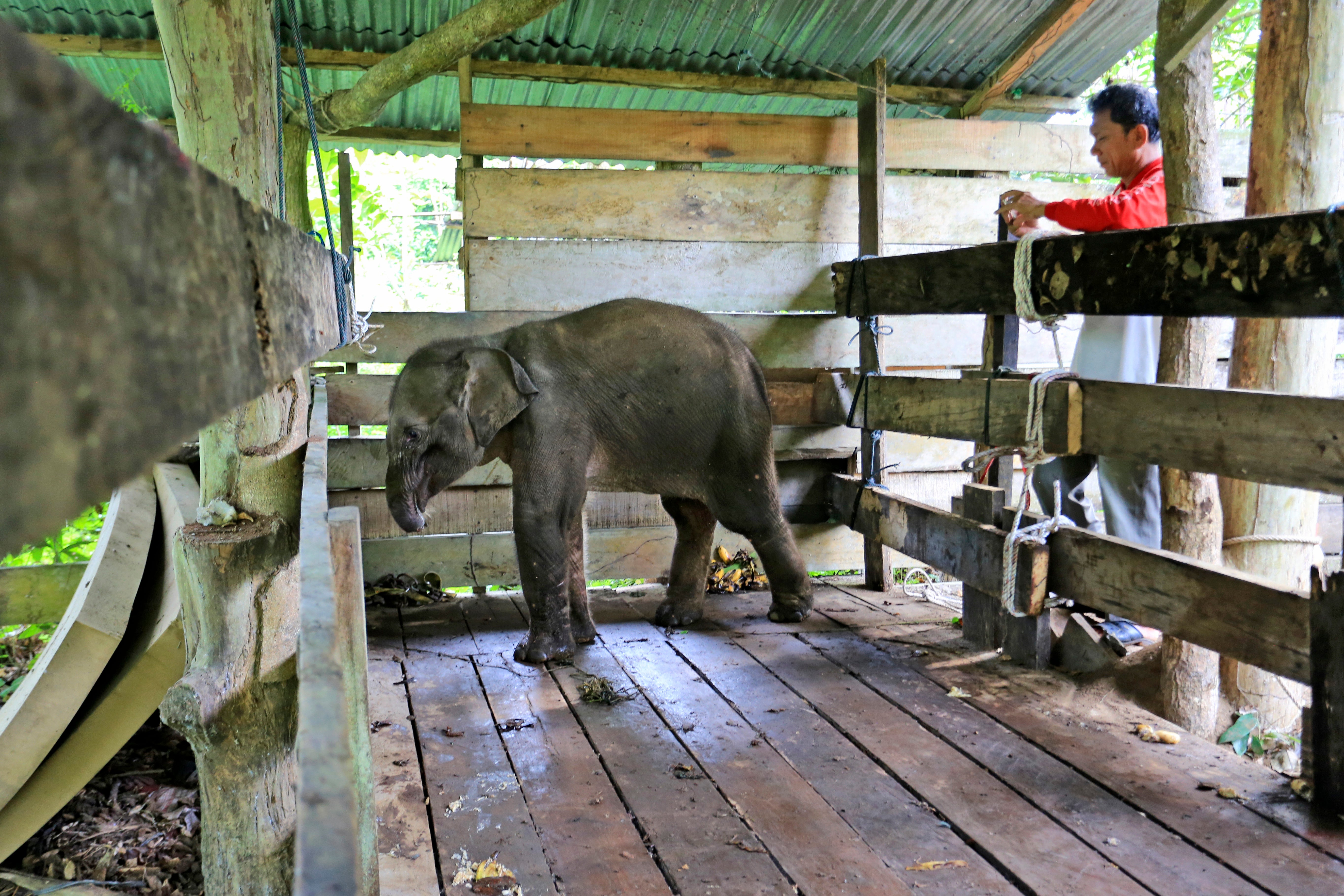Baby elephant loses half of its trunk in poachers’ trap
Covid pandemic has led to an increase in poaching across Sumatra, say conservationists

Your support helps us to tell the story
From reproductive rights to climate change to Big Tech, The Independent is on the ground when the story is developing. Whether it's investigating the financials of Elon Musk's pro-Trump PAC or producing our latest documentary, 'The A Word', which shines a light on the American women fighting for reproductive rights, we know how important it is to parse out the facts from the messaging.
At such a critical moment in US history, we need reporters on the ground. Your donation allows us to keep sending journalists to speak to both sides of the story.
The Independent is trusted by Americans across the entire political spectrum. And unlike many other quality news outlets, we choose not to lock Americans out of our reporting and analysis with paywalls. We believe quality journalism should be available to everyone, paid for by those who can afford it.
Your support makes all the difference.An infant elephant has lost half of its trunk after being caught in a poachers’ trap on an Indonesian island, allegedly set for the purpose of hunting the endangered species.
The one-year-old was found with a snare lodged in her almost-amputated trunk in a village in the Aceh Jaya district of Sumatra.
Wildlife officials had no other choice but to amputate half of the trunk.
“This obviously was intended to poach endangered animals to earn money,” aid Agus Arianto, the head of Aceh province's conservation agency.
According to Arianto’s retelling, the elephant calf was deserted by the rest of the herd after becoming weaker while ensnared within the trap.
The Covid pandemic has led to an increase in poaching across Sumatra, say conservationists, as more people have turned to hunting for economic reasons.
It follows reports of an elephant being found decapitated in a palm plantation in East Aceh.
Police arrested a suspected poacher along with other four people accused of buying ivory from the dead animal.
Their trials are still ongoing since last month. They face up to five years in prison and a fine of 100 million rupiah (£5,250) if found guilty.
The number of Sumatran elephants that have died as a result of being snared and poisoning has reached 25 in the past nine years in East Aceh district alone, Arianto said.
The International Union for Conservation of Nature, or IUCN, has raised the status of the Sumatran elephant from endangered to critically endangered in its 2012 Red List, mostly because of a significant drop in the population as indicated by the loss of over 69 per cent of its potential habitat in the last 25 years — the equivalent of one generation.
Indonesian forestry and environment ministry's data showed the Sumatran elephant population has shrunk from 1,300 in 2014 to 693, down nearly 50% in the past seven years.
Sumatran elephants are a subspecies of the Asian elephant, one of two species of in the world.
Join our commenting forum
Join thought-provoking conversations, follow other Independent readers and see their replies
0Comments